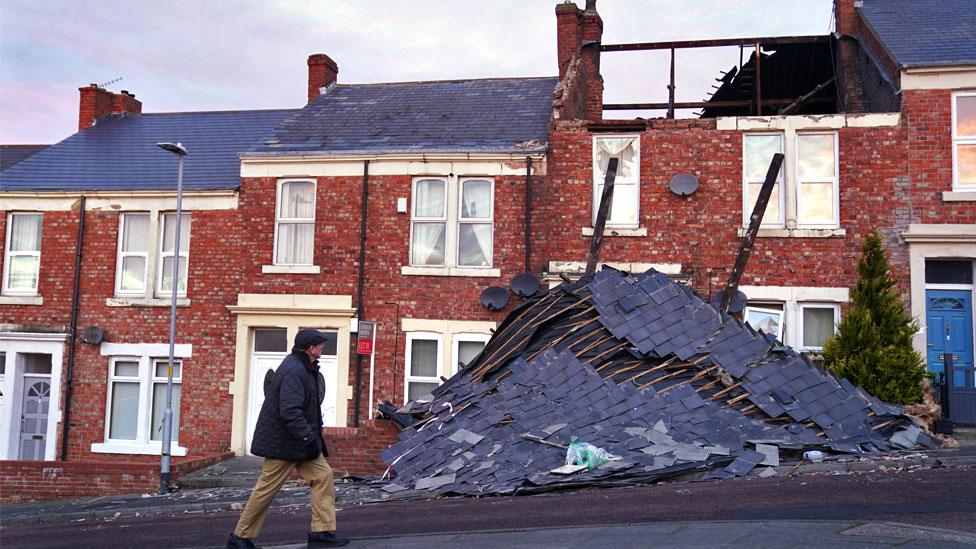Police Scotland warn of hazardous driving conditions
- Published
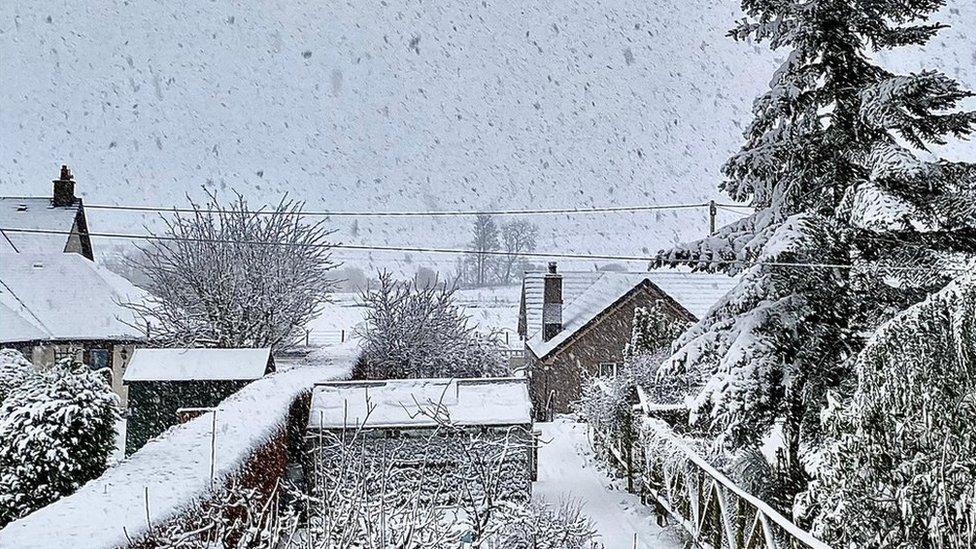
Woodside in Perth and Kinross captured by Weather Watcher Lara
Police have warned of "hazardous" conditions for travel as falling temperatures overnight may have left widespread icy patches.
It follows the Met Office issuing a yellow weather warning for overnight snow and ice across most of mainland Scotland. This has now expired.
Forecasters said further wintry showers were expected, with snowfall on higher ground, leading to icy surfaces.
Police Scotland urged people to take "extra caution".
Drivers across Scotland already faced hazardous conditions when much of the country was blanketed by snow and ice on Thursday.
The Met Office said the unsettled weather would stay around over the next four or five days, although conditions were not expected to be as severe as during the past week.
The snow and freezing temperatures have been of benefit to Scotland's mountain snowsports centres.
However, some staff at Glencoe Mountain had to work through the night to get generators in place after a lightning strike knocked out the mains power.
The resort was able to make all its runs available on Friday and managing director Andy Meldrum described the conditions for skiing as "amazing".
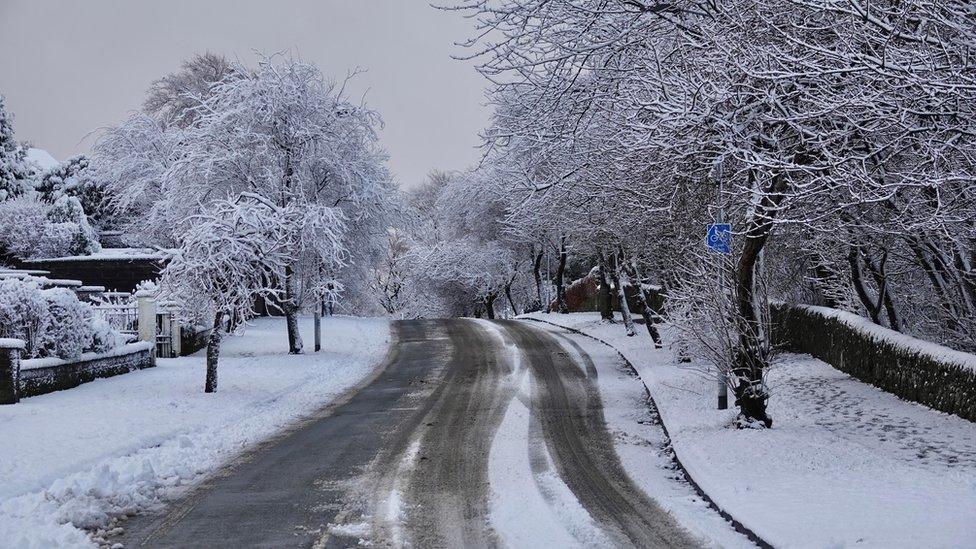
Cambus Booler captured this snowy scene in Alloa, Clackmannanshire
Thursday's snow saw a total of 29 high schools, primaries and nurseries in the Highlands and 10 schools in Perth and Kinross close.
Several schools in South Lanarkshire also delayed opening.
On the roads, Traffic Scotland said snowy conditions affected much of the central belt, the A9 around Slochd and the A90 around Dundee.
A number of rail and ferry services were also hit by heavy snow.
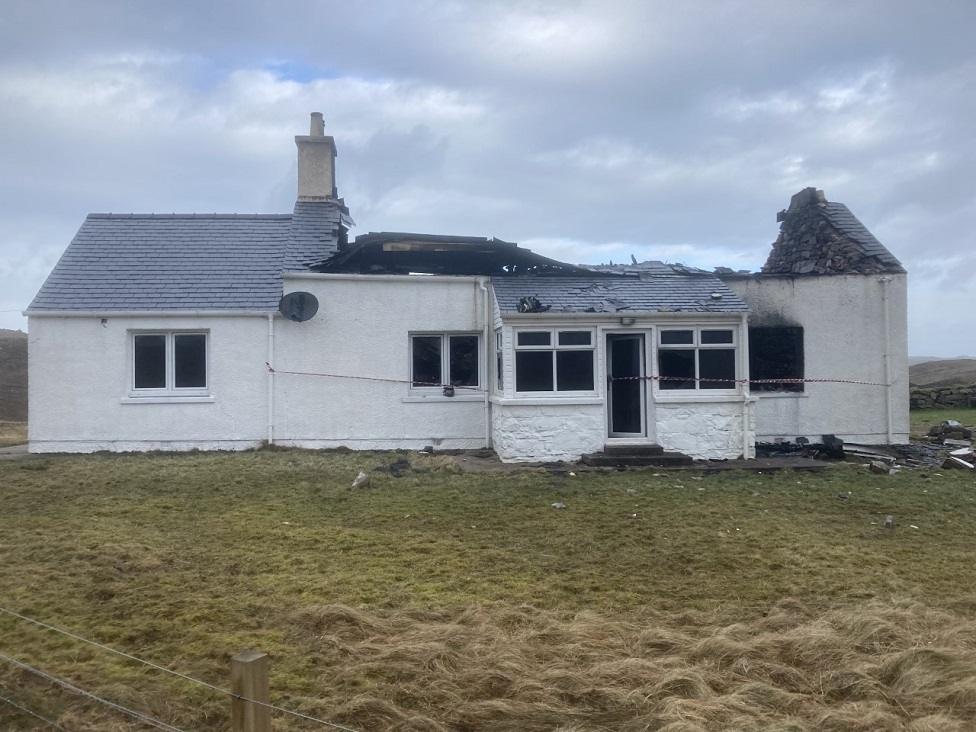
A house on the Isle of Lewis caught fire after being struck by lightning on Wednesday
Meanwhile, a house in Ardroil, Uig on the Isle of Lewis, was struck by lightning and caught fire during the adverse weather.
The Met Office said there was a small chance that snow showers could be accompanied by frequent lightning, which could affect power supplies.
This could affect some places outside of the yellow warning area.
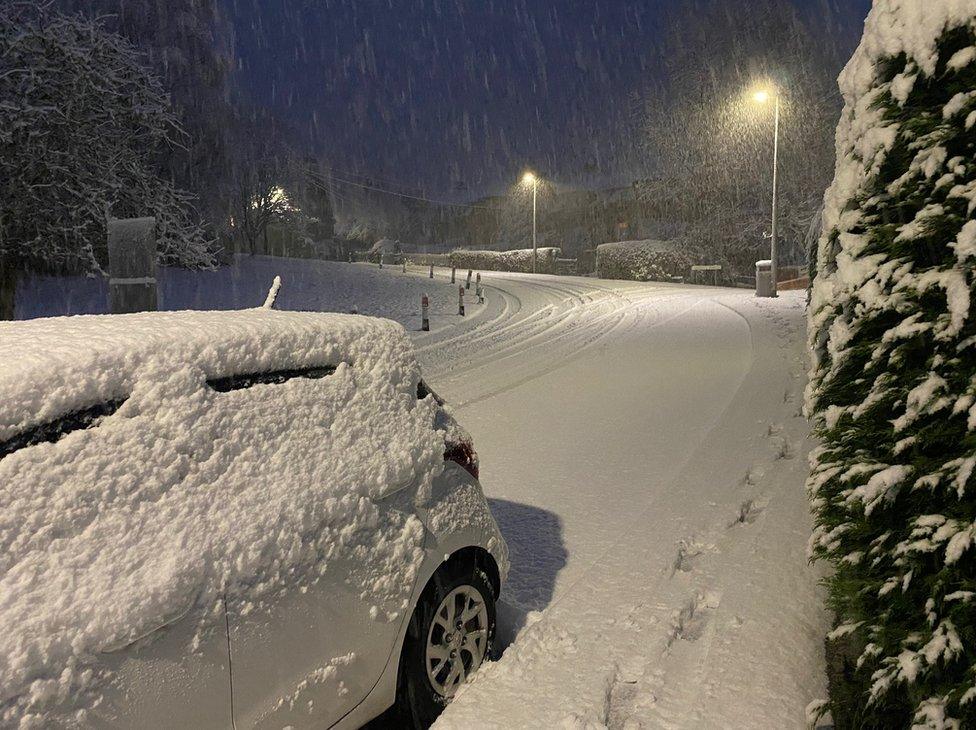
Thick snow lay on the roads in Aberfoyle on Thursday
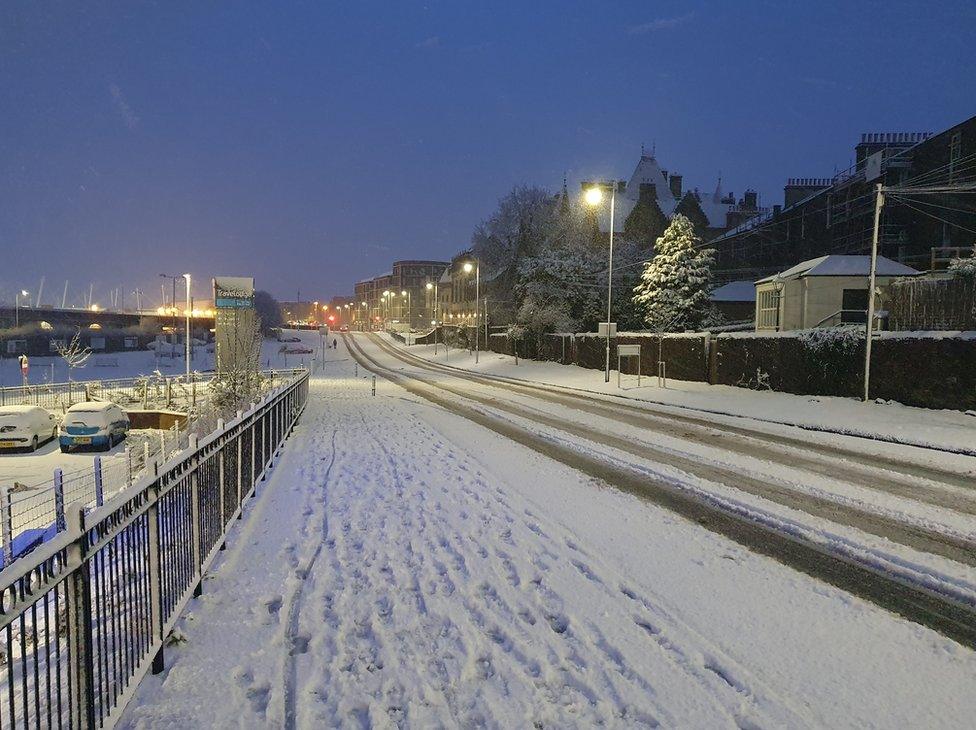
Gritters had yet to tackle this route in Stirling in the early hours of Thursday
The latest bad weather follows a run of named storms affecting Scotland and the rest of the UK.
Millions of people in the south of England and Wales were told to stay at home as Storm Eunice was expected to be one of the worst storms in decades.
Three people were killed in London, Hampshire and Merseyside as fierce winds toppled trees and sent debris flying. Five others were killed in Europe.
It followed storms Malik and Corrie in January, which left 118,000 homes in Scotland and 80,000 in England without power.
And in November, whole communities were left without power for days during Storm Arwen while travellers from Elgin to Aberdeen were stuck on board a train for 17 hours.
- Published19 February 2022
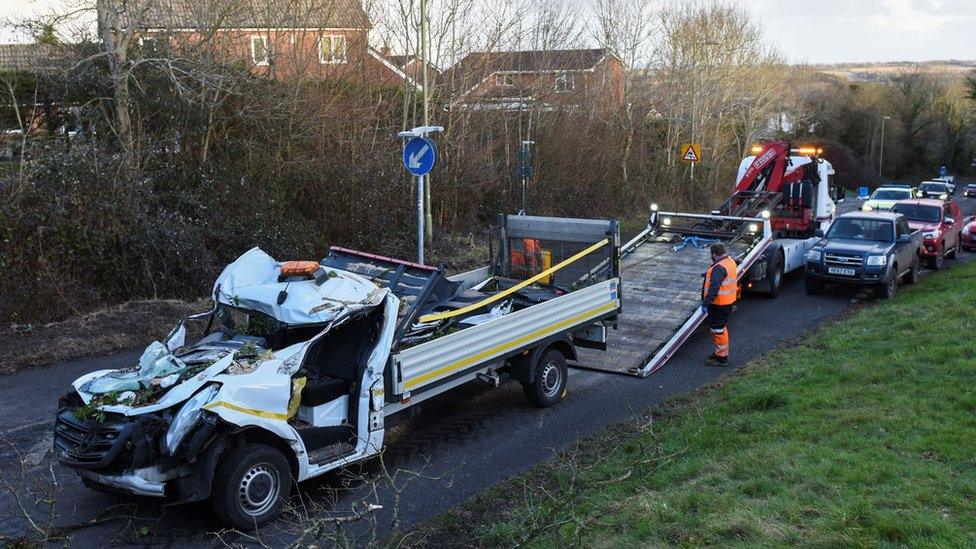
- Published24 February 2022
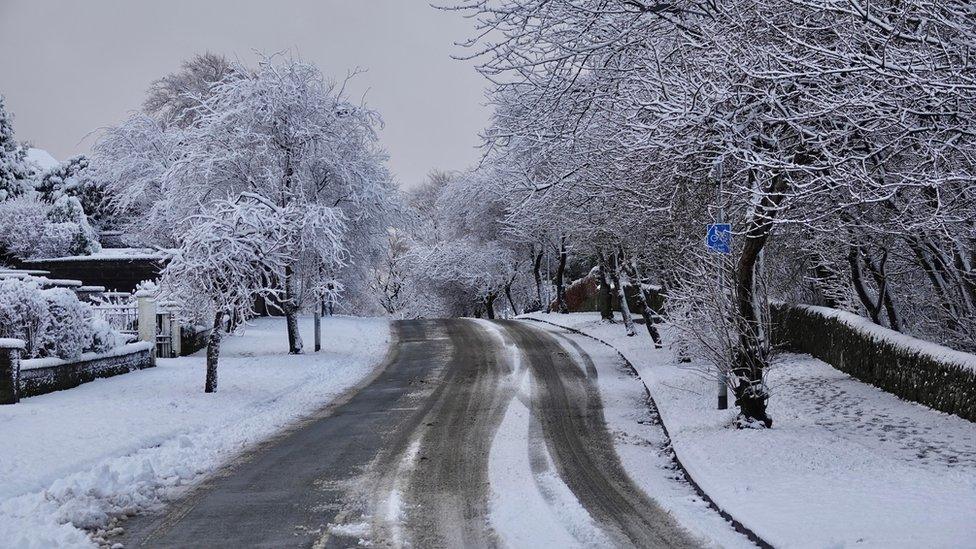
- Published18 February 2022
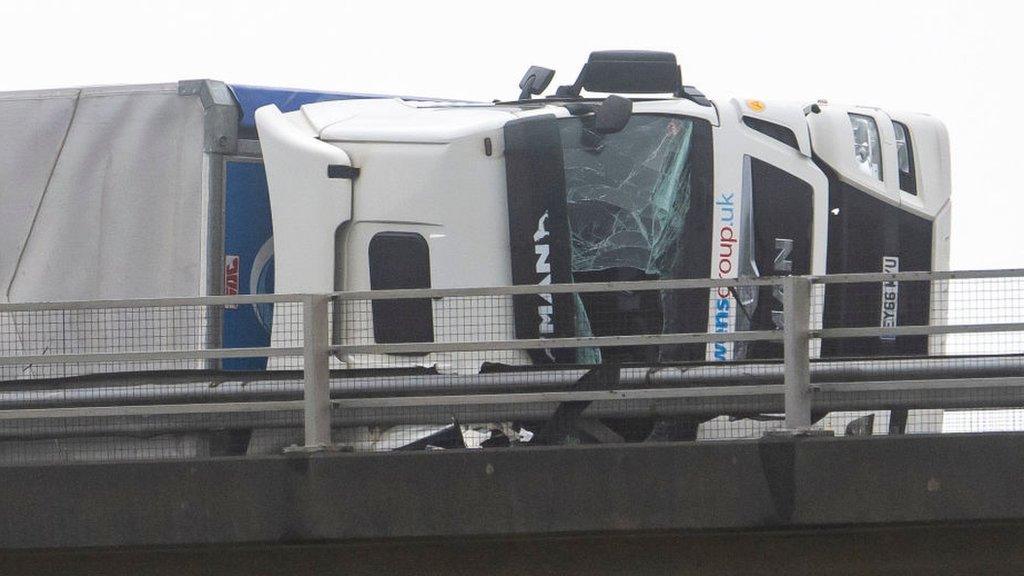
- Published31 January 2022
